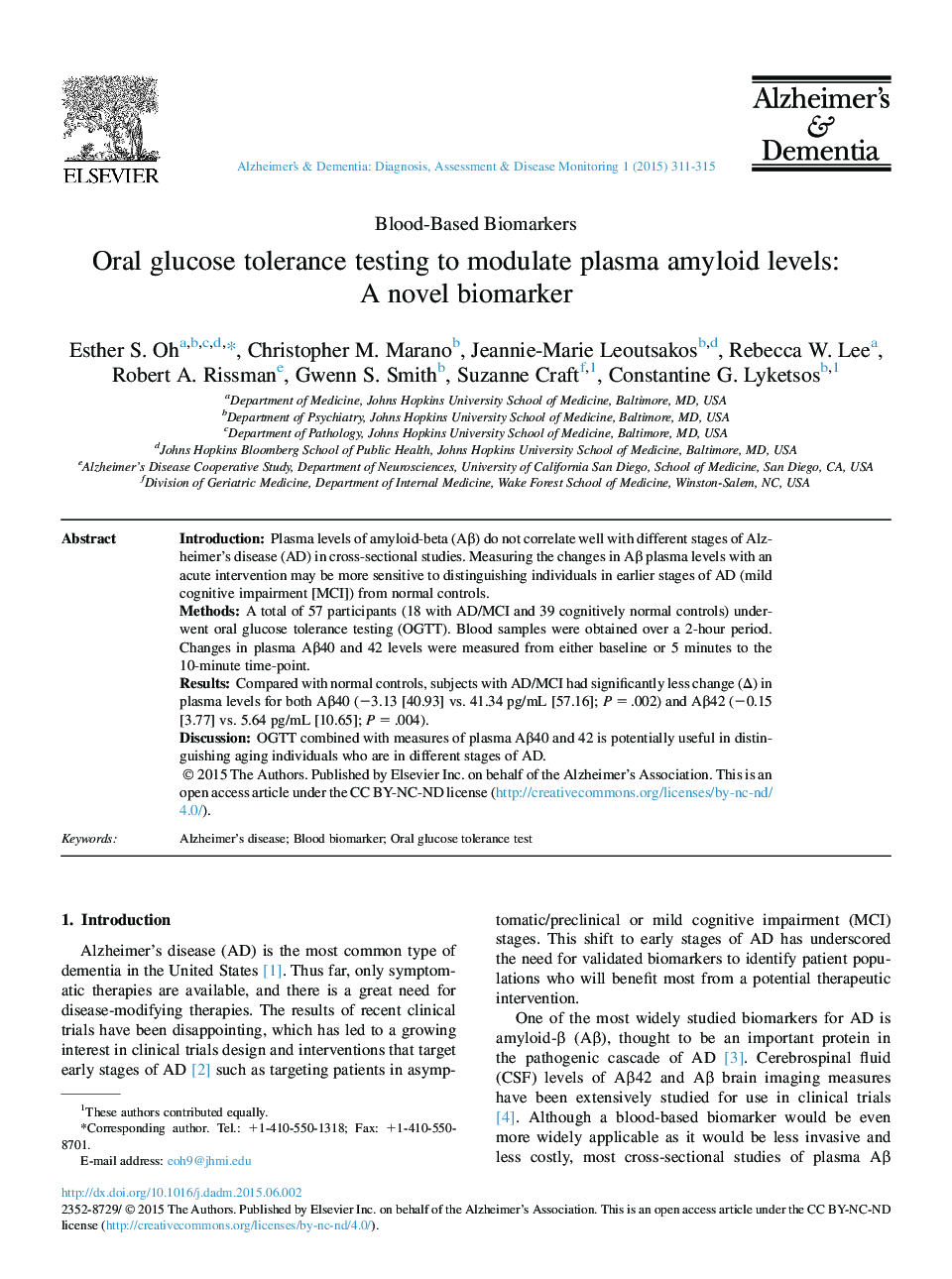| Article ID | Journal | Published Year | Pages | File Type |
|---|---|---|---|---|
| 3032070 | Alzheimer's & Dementia: Diagnosis, Assessment & Disease Monitoring | 2015 | 5 Pages |
IntroductionPlasma levels of amyloid-beta (Aβ) do not correlate well with different stages of Alzheimer's disease (AD) in cross-sectional studies. Measuring the changes in Aβ plasma levels with an acute intervention may be more sensitive to distinguishing individuals in earlier stages of AD (mild cognitive impairment [MCI]) from normal controls.MethodsA total of 57 participants (18 with AD/MCI and 39 cognitively normal controls) underwent oral glucose tolerance testing (OGTT). Blood samples were obtained over a 2-hour period. Changes in plasma Aβ40 and 42 levels were measured from either baseline or 5 minutes to the 10-minute time-point.ResultsCompared with normal controls, subjects with AD/MCI had significantly less change (Δ) in plasma levels for both Aβ40 (−3.13 [40.93] vs. 41.34 pg/mL [57.16]; P = .002) and Aβ42 (−0.15 [3.77] vs. 5.64 pg/mL [10.65]; P = .004).DiscussionOGTT combined with measures of plasma Aβ40 and 42 is potentially useful in distinguishing aging individuals who are in different stages of AD.
